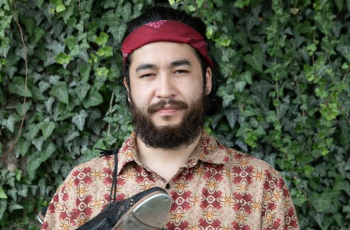Image Caption
Local Journalism Initiative Reporter
Windspeaker.com
It’s the rhythms that linger. The tap dancing, the traditional dancing and even the waving of the grass in the fields.
But behind the dance rhythms are the questions of self-identification, self-realization and a question of what it means to live a decolonized life.
The documentary, Restorative Culture: Johnathan Morin, directed by Travis Knights is a journey of self-discovery as he balances his love for tap, a classic African American dance form, with his yearning to know his family’s Nehiyaw heritage in Alberta.
Morin, 33, identifies as Cree, is the founder, dancer, choreographer, and director of the Toronto-based Rhythm and Sound Dance Company. He didn’t intend on creating a documentary that explored his self-discovery when he first partnered with Knights.
“I was asked by Travis for a different project during the pandemic for the Luminato Festival and the prompt was, ‘What does it mean to be Canadian?’” he said.
Morin explained there was an interview and dance portion, posted online, which prompted a lot of discussion.
“This was, I think, shortly after the residential school news that came out as well,” he said. “So, it was a loaded question, and it sparked a lot of discussion, and the project kind of felt unfinished, and felt like it just needed to be flushed out and done properly.”
The news that Morin referred to began in the spring of 2021 when it was revealed 215 unmarked graves of children had been located at a former residential school in Kamloops, B.C. Other unmarked graves were also found at other former residential schools across the country after that.
Morin and Knights went about securing funding for the documentary, which was recently screened as the opening night gala of the 2024 Toronto International Tap Dance Festival, followed by an online presentation Aug. 23 through Sept. 6.
In the documentary, we see Morin, his partner Cori Giannotta and members of the tap community experimenting with old and new tap forms. Morin talks about loving the art form but questioning if it was right for him as an Indigenous Canadian to perform tap.
This starts him on his discovery of his Indigenous heritage, which takes him back to Alberta where he grew up. There, we meet and hear from his mother, his foster mother, and watch as Morin reconnects with his family including his siblings, learns more about his Indigenous heritage and participates in several dances.
He said that while the documentary’s narrative was personal, doing it also meant acknowledging the generational trauma that has resulted in the colonization and treatment of Indigenous people.
“That history of what the government did to our people is ingrained into our DNA,” he said. “In a terrible sense, we were all indirectly or directly affected by the generational trauma that happened. And this theme is going to come up like these discussions about generational trauma and figuring out how to reconnect with what was taken (from us).
“That's, in my opinion, the most important part of the doc. It’s encouraging people to find their way back to who they are.”
Morin said that while he’s specifically speaking to Indigenous relatives, he also thinks everyone needs to take time to figure out what's important to them, who they are and where they come from.
Part of that, for Morin, is decolonizing current schools of thought about land use, schools and history. Decolonization, depending on Indigenous Elders and various institutions, is going back to Indigenous traditions and taking a critical look at how colonization has affected Indigenous peoples in Canada.
Morin got the chance to experience this when he spent four days living off the land in Jasper, Alta. It was hard but the land kept him going. Seeing the effect of the wildfires was devastating. “What I'm learning is that if we live the way that we were living before colonization and before our ways of life were changed, it would benefit everybody,” he said.
The documentary comes back to the beginning, with Morin performing tap in front of an audience. When asked if and how he reconciled his identity with the love of the dance, he said it is still a journey.
“I think about the history of tap dance and I think about how it's an African American art form and I'm never going to take that away,” he said. “But let's really dig (into it) because the history of African Americans, the history of Indigenous people of Turtle Island, the history of jazz music, and in general, the history of culture in North America has been consistently hidden, wiped out, appropriated and rewritten. So, yeah, that's, that's something that I'm really digging into.”
Restorative Culture: Johnathan Morin can be rented from Sept. 28 through Oct. 14 at taplovetour.com/doc

